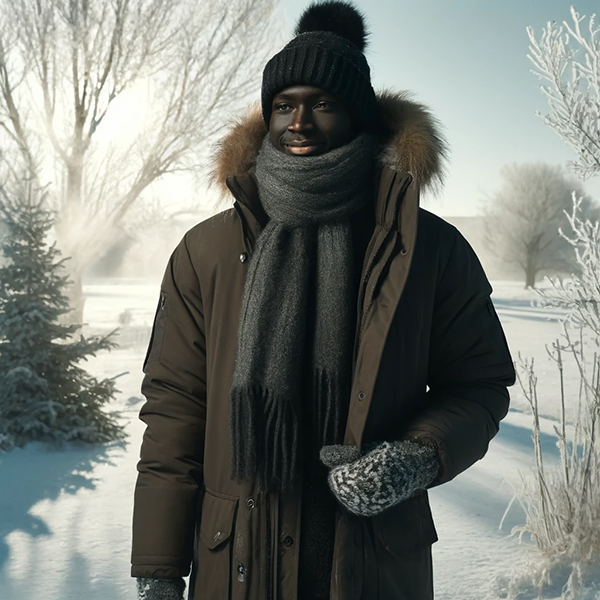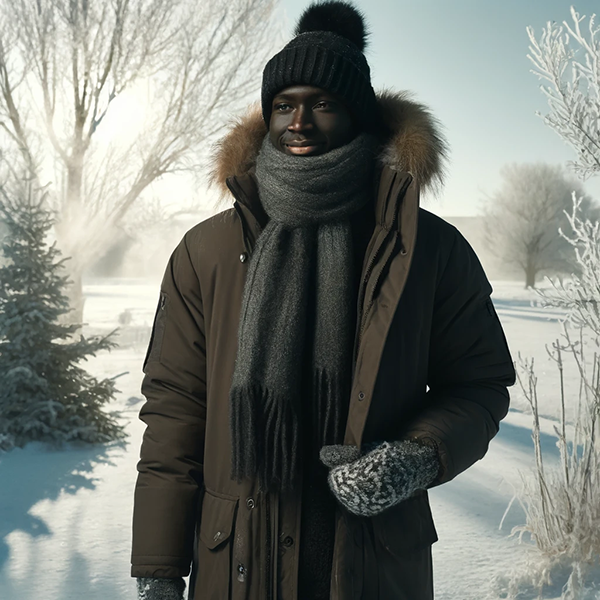Temperature is an important factor to our general comfort.
Perfect health depends upon perfect blood circulation in the body.

Our bodies must maintain the right internal temperature in order for us to stay Healthy and Alive. It must always be right around 98-100 degrees Fahrenheit or 37-38 degrees Celsius. If it varies too much, systems cannot function properly and our health is in danger.
“Our Creator has formed the limbs with large veins and vessels to contain a large proportion of blood, that the limbs may be sufficiently nourished and proportionately warm with other portions of the body. But fashion robs the limbs of coverings, and the life current is chilled from its natural channel and thrown back upon its internal organs.” HR, January 1, 1877 par. 7
Special attention should be given to the extremities, that they may be as thoroughly clothed as the chest and the region over the heart …When the extremities, which are remote from the vital organs, are not properly clad, the blood is driven to the head, causing headache or nosebleed; or there is a sense of fullness about the chest, producing cough or palpitation of the heart, on account of too much blood in that locality; or the stomach has too much blood, causing indigestion. Child Guidance 426.
Cold air can impact your vital organs such as your heart, lungs, kidneys, spleen.
Your body’s first reaction to cold is to try to keep warm. Your blood vessels constrict in cold weather to keep the heat in your body. Your heart will beat faster and that can increase your blood pressure. Cardiologist Leslie Cho, MD.
Extensive exposure to cold can cause your body to get into a hypothermia state. This is where your core temperature is less than 95 degrees and you feel constantly chilled.
Symptoms of Hypothermia include lack of coordination, mental confusion, slowed reactions, shivering, sleepiness.
If you have heart disease you can experience chest pain and possibly a heart attack which can lead to death. Your heart is under greater stress when you combine cold weather with vigorous activity, strenuous work or exercise. Take frequent rest breaks so you do not overstress your heart.
Inhaling cold air can impact your breathing and health. It can cause Pneumonia. In people with chronic obstructive pulmonary disease (COPD), cold air can trigger spasms in the lungs, creating asthma-like effect. Dr. Rachel Taliercio, DO
Symptoms of inhaling cold air are breathlessness, feel out of breath, cough or start to wheeze, tightness in the chest, headache,
Action: Keep hydrated by drinking lots of fluids and dress warmly covering full arms and legs. Layers are a good way to insulate your body as it traps warm air. Wear warm comfortable shoes, socks, and gloves. Also, wear a hat so heat does not escape through your head. Covering your nose and mouth with a mask or scarf is also helpful to prevent cold air from entering your lungs. To maintain warm hands and feet, on mornings begin your shower with warm then end with cold water. This will also help to build your immune system.

No responses yet